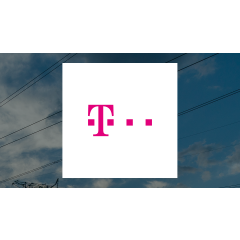
The performance of two significant players in the telecommunications industry, Deutsche Telekom and Koninklijke KPN, has come under scrutiny as analysts evaluate their profitability, dividends, and overall business health. This analysis aims to identify which company stands out as a more robust investment option based on various financial metrics.
Analyst Ratings and Recommendations
Recent recommendations for Koninklijke KPN and Deutsche Telekom reveal differing perceptions among analysts. According to data from MarketBeat, Koninklijke KPN received a score of 2.00, with no strong buy or buy ratings, indicating a more cautious stance from analysts. In contrast, Deutsche Telekom has a higher rating score of 2.75, bolstered by two buy and one strong buy recommendations. This suggests that analysts are more optimistic about Deutsche Telekom’s future performance compared to its Dutch counterpart.
Volatility and Risk Assessment
Risk assessment shows that Koninklijke KPN exhibits less volatility with a beta of 0.35, indicating its share price is 65% less volatile than the S&P 500 index. In comparison, Deutsche Telekom has a beta of 0.54, reflecting a 46% lower volatility than the same index. This lower volatility may attract risk-averse investors seeking stability in their portfolios.
Dividend Comparison
When examining dividend payouts, Deutsche Telekom offers a significantly higher annual dividend of $1.88 per share, yielding 6.0%. Meanwhile, Koninklijke KPN pays an annual dividend of only $0.13 per share, translating to a yield of 2.9%. Notably, Deutsche Telekom allocates 69.6% of its earnings to dividends, suggesting a commitment to returning value to shareholders.
Financial Performance and Valuation
A detailed comparison of key financial metrics reveals that Deutsche Telekom far surpasses Koninklijke KPN in revenue and earnings. For the current fiscal year, Deutsche Telekom reported gross revenues of $125.29 billion with a price-to-sales ratio of 1.23. In contrast, KPN generated $6.10 billion in gross revenue, with a price-to-sales ratio of 2.85.
Moreover, Deutsche Telekom’s net income stands at $12.13 billion, with earnings per share (EPS) of $2.70 and a price-to-earnings (P/E) ratio of 11.64. In contrast, KPN’s financial data falls short, lacking available EPS and P/E ratio figures.
Profitability Metrics
Profitability metrics further illustrate the disparities between these two companies. Deutsche Telekom boasts a net margin of 10.67%, a return on equity of 10.14%, and a return on assets of 3.25%. In contrast, no profitability metrics were reported for Koninklijke KPN, underscoring its comparative struggles in this area.
In summary, Deutsche Telekom outperforms Koninklijke KPN across multiple key financial indicators, including revenues, profitability, dividends, and analyst ratings. The data suggests that investors seeking stable and profitable telecommunications investments may find Deutsche Telekom to be a more favorable option.
Company Overviews
Koninklijke KPN N.V., founded in 1881 and headquartered in Rotterdam, Netherlands, provides a range of telecommunications and IT services. Its offerings include fixed and mobile telephony, broadband internet, and television services, as well as cybersecurity and cloud solutions.
On the other hand, Deutsche Telekom AG, incorporated in 1995 and based in Bonn, Germany, provides integrated telecommunications services across various segments, including mobile and fixed-network services, internet solutions, and cloud services. It serves a diverse customer base, comprising both individual consumers and large corporations.
As the telecommunications landscape continues to evolve, the performance of these two companies will be crucial in shaping market trends and investment opportunities in the sector.







